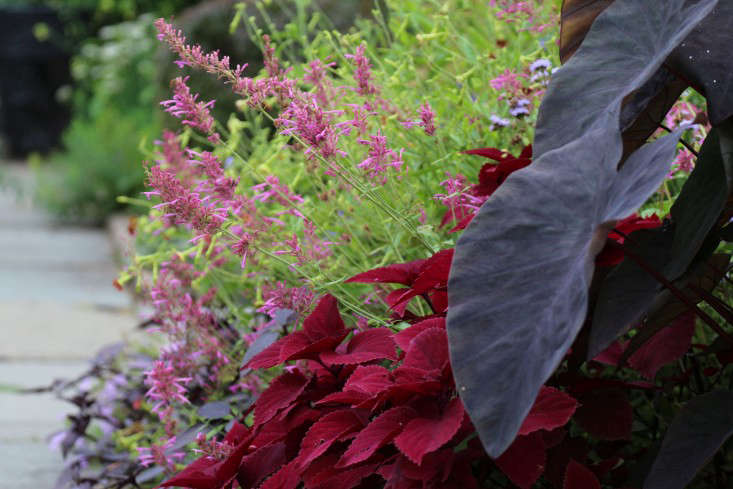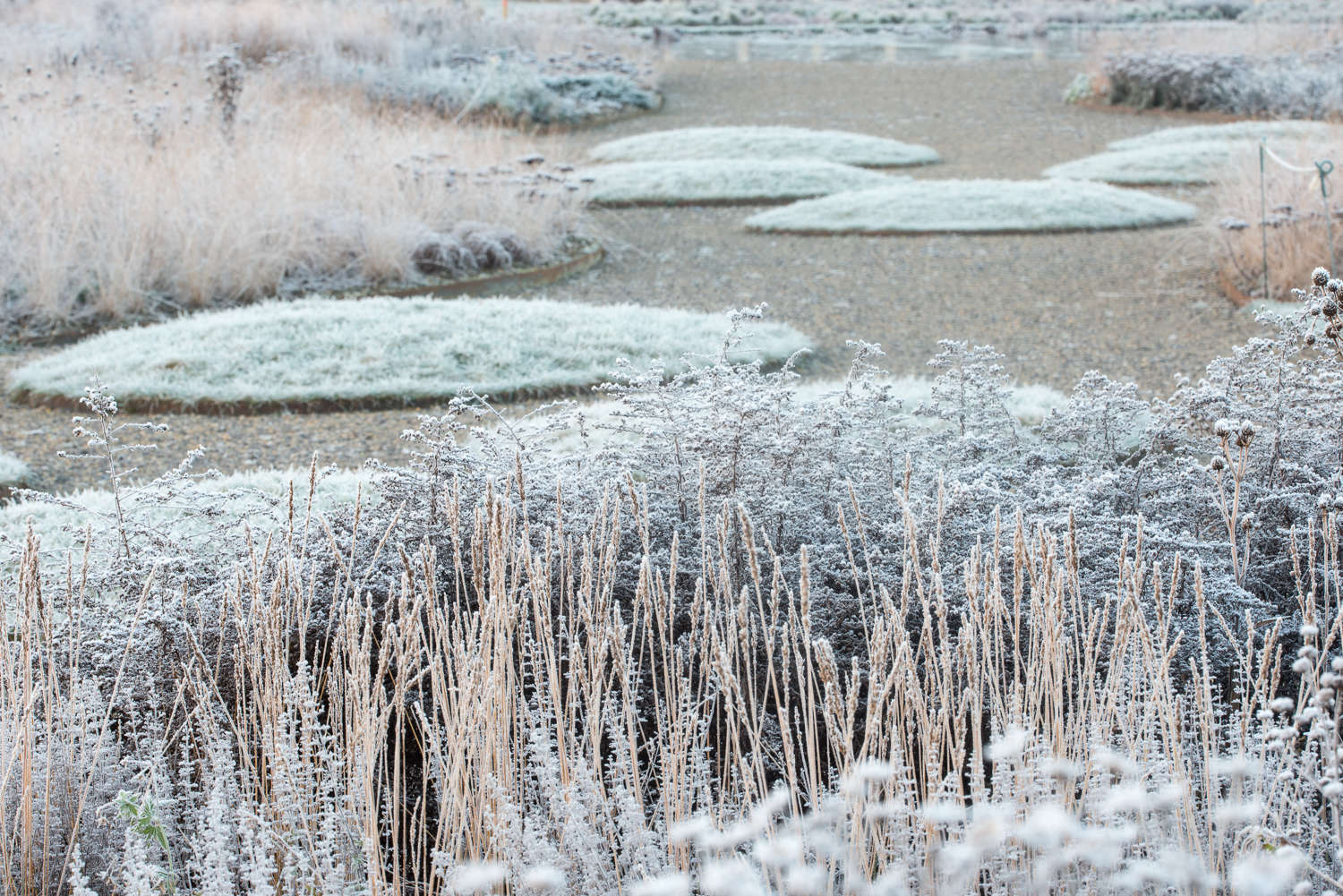For gardeners who crave color–and really, who among us is immune?–the sudden decline from a giddy, glorious springtime into the dusty doldrums of summer can be a terrible shock to the system. Let’s make a plan to prevent that.
The secret? A little color can go a long way. Add a spot of blue against a chartreuse backdrop or have a clump of hollyhocks at eye level. All it takes is a little color to create the illusion that the whole garden is in bloom. Here are nine of our favorite ideas to add color to a flower garden:
Something Blue

Above: Camassia bulbs in bloom. Photograph via Rose Cottage Plants. For prices and varieties, see Rose Cottage Plants.
Because true blue is an unusual flower hue, it draws the eye and creates an overall impression of color. Camassia has what garden designer Luciano Giubbilei describes as “intensely blue, small starry flowers on vertical spires to give the border a final spring whoosh before the summer perennials take center stage.”
Color Wheel Cousins

Picture a color wheel. Purple, orange, and green are the three secondary colors, each made up of a equal parts of two primary colors, and balance one other well in a garden bed. For a tall, orange trumpet lily that will thrive in the summer garden, Lilium Henryi is $16.95 for three bulbs from White Flower Farm.
Front and Center

Above: For more of this garden, see How to Eliminate Boxwood Blight: Plant a Different Shrub. Photograph by Kendra Wilson.
Plant long-stemmed flowering perennials on either side of a path, and if they succumb to the heat let them flop over onto the walkway to call attention to themselves.
Make Eye Contact

Above: Hollyhocks grow against at wall. For more of this garden, see Camera Ready in the English Countryside at Walnuts Farm. Photograph by Nick and Bella Ivins.
A 4-to-6-foot-high stem with a flower at eye level will focus attention on what’s blooming. Start hollyhocks from seed with a packet of Double Carnival Rosy Red Hollyhock Seeds; $2.50 from Baker Creek Seeds.
Big and Blowsy

Above: Photograph by Erin Boyle.
Above: Plant a big clump of a showstopper–such as peonies–and you won’t need any other color while they’re in bloom. In a temperate climate, for instance, peonies will take you through May and into June, when roses will come into their own. After roses are over, hydrangeas will keep blooming into August.
Verbena Verve

Above: Verbena explodes like a firecracker in the air, with a pop of purple hovering above the rest of the garden. It’s a good companion in a perennials garden because the long, delicate stem doesn’t get in the way of anything else. For more, see 11 Garden Ideas to Steal from London. Photograph courtesy of Anna Wardrop Garden Design.
Gentle Giants

Above: Photograph by Britt Willoughby Dyer.
Nothing says summer like a sunflower towering above a garden bed. Easy to grow from seed, a sunflower looks friendly in nearly any setting.
With a long season (from early spring to late fall), a packet of Vincents Choice Sunflower Seeds will see a garden through those difficult weeks in August when it feels like nothing else is in bloom; $4.10 from Johnny’s Seeds.
Larkspur Flowers

Above: Photograph by Amy the Nurse via Flickr.
Delphinium’s more delicate cousins, larkspur flowers come in all the loveliest shades of purple and blue. With their shorter stems and fewer blossoms per branch than delphinium, larkspur is less like to become top heavy or succumb to the first rain shower. It’s an annual, but will self-sow freely–expect it to pop up somewhere in the garden next year, too.
A quarter-pound packet of purple Delphinium Consolida Seeds is $10.95 from High Country Gardens.
Extend the Season

Above: Above: Elephant-eared Colocasia esculenta ‘Black Magic’, Solenostemon ‘Redhead’, and Agastache cana ‘Heather Queen’ create a burst of color in September and October. Photograph by Marie Viljoen.
Pair late-season bloomers such as agastache with bright-leafed plants. For more color combinations, see Color Theory: 10 Perfect Plant Combinations for Autumn.
For more of our favorite colorful flower gardens, see:
- Celia’s Garden: At Home with an English Artist.
- Garden Visit: At Home in Rhode Island with Artist Georgia Marsh.
- Home Again: My Mother’s Garden in South Africa.












Have a Question or Comment About This Post?
Join the conversation (3)